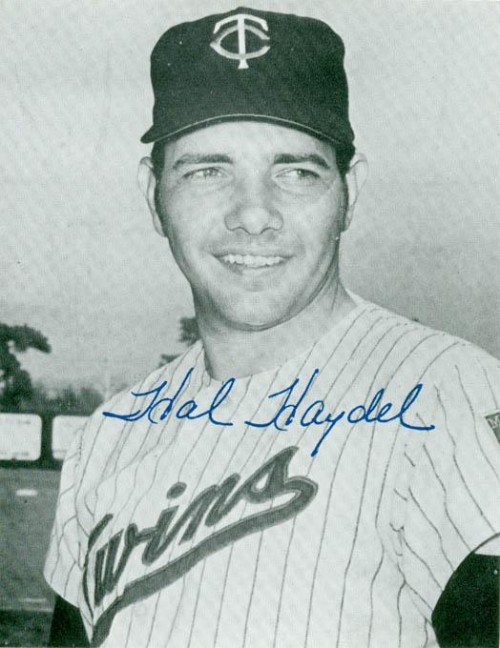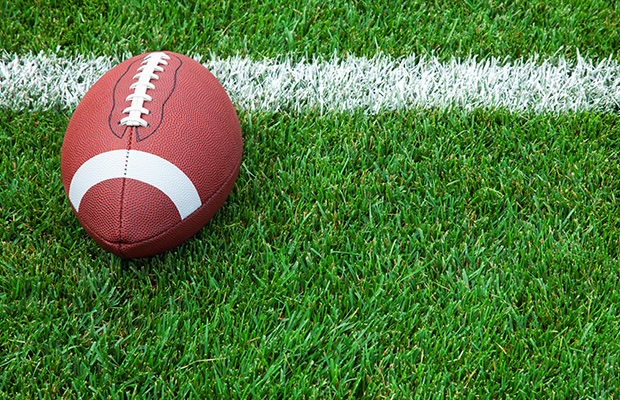December 3
December 3, 2007Storme’ Mestas
December 5, 2007Harold “Hal” Haydel introduces hot deals as a manager at Trapp Chevrolet.
But at one time, the 63-year-old Houma resident was also bringing the heat as a pitcher with the Minnesota Twins in the early ’70s. Haydel constructed an impressive 6-2 record through two seasons in the majors.
The Sports Net caught up with Haydel to kibitz about the game’s evolution.
Sports Net: Are you always a little upset around this time of year now that baseball season is over?
Hal Haydel: To be perfectly honest, the answer is no because I don’t really follow baseball that much anymore. I never was a fan. If I could participate in it, that was great. I coached American Legion and Little League ball for years, and I also coached Babe Ruth baseball. But as far as being a spectator for most any sport, I don’t do that.
SN: Even with football?
HH: I’ll occasionally watch the (LSU) Tigers play and I’ll watch the Saints, but they don’t hold my attention for too long.
SN: You only played two seasons in the big leagues, but had some pretty successful numbers. Why only two years?
HH: Well, you’re caught up in numbers and sometimes you don’t quite have the “stuff” they (coaches) are looking for. When I mean “stuff,” I mean the curveball, changeup, and slider and fastball. My big thing was my fastball. I could throw it very hard, and could make it sink and slide. And I was probably in the neighborhood of 93 to 95 mph. That was the pitch I could always do best. My curveball was mediocre. My slider got me by, and my changeup,well, I’m still trying to find that one.
You need to be in control of all those pitches to stay for such a long period of time. There were guys that were playing that I thought I was better than, but at that time, teams carried nine pitchers and there were only 10 teams in each league. Today, there are 16 in each league. So, you get caught up in the numbers. I just felt fortunate enough to play in the big leagues.
SN: Describe what it was like playing in your first major league game.
HH: In my first major league game, Luis Tiant was pitching and hurt himself in the first inning. So they called out to the bullpen for me to come in. It was against the Milwaukee Brewers. I went in and there were 40,000 people in the stands.
SN: Pretty nervous?
HH: Yeah, I was nervous, yet controlled enough to say “Hal, this is the big moment that you’ve been waiting for all your life, so why do you want to be nervous? Why?” I kept telling myself that but couldn’t get my legs to stop shaking.
SN: Was it noticeable?
HH: (Laughs) No, because we had big pants back then. If they were tighter, you could have seen my legs shake. I ended up pitching seven innings and gave up a few runs and we won 8-3. But my claim to fame is that in my first time at-bat, I hit a double. And then, in my second time at-bat, I hit probably the longest ball that’s ever been hit at Metropolitan Stadium for a home run, and that’s not true but you can print that. (Laughs)
I’ll be perfectly honest with you – I didn’t really care about the win. I really just talked about my home run and double.
SN: So your very first game, you remember your hitting more than your pitching.
HH: (Laughs) I think so. I pitched fairly well, but my hitting debut overshadowed my pitching debut.
SN: Did you have to go through any crazy initiation rituals?
HH: Oh no, they didn’t have that then. They kind of joked around, but there was no initiation for us. It was too much of a business and guys were scuffling to stay there, so there wasn’t too much of that.
SN: Who were some of the bigger names you played alongside or against?
HH: The guys I played against were Harmon Killebrew and Rod Carew – who was a tremendous hitter – not too many people know that he won, I think, seven batting titles. I also played with Tony Oliva, center fielder Caesar Tovar, Bob Allison, Rich Reese (who was the first baseman), Rick Dempsey, Jim Perry, and Ron Perranoski, a pitcher who used to be with the Dodgers when (Don) Drysdale and (Sandy) Koufax were with them. I also played with Stan Williams, who used to pitch with Yankees – he was in the bullpen. But really notable (laughs) was a young prospect from Houma, Louisiana named Hal Haydel.
SN: Well, of course. What high school did you attend?
HH: I went to St. Francis de Sales – it was a Catholic boys school (before becoming Vandebilt Catholic). But if you want to go back and look at some records, that little school with a little over 100 enrollment won more state baseball championships than any other in this town.
SN: Describe the current state of baseball.
HH: Baseball today is even more of a business now than it was when I played.
Back in my day, before the unions, you did anything they told to do and accepted it. Whereas today, you have agents and you have contracts because of the cable companies that pay such big dollars to Major League Baseball. And you have guys who are dedicated to baseball but not to the club they are playing for. If they were, they’d try to stay with an organization and make it grow around them.
SN: That used to happen a lot more back in the day.
HH: Absolutely. And I hate to make comments about that, because I don’t know what those guys are thinking. I’m just looking at this as an outsider. That’s just what it appears like to me. When you’re talking about paying a guy $15 million a year, you’d think that this guy would hit 1.000 and knock in 500 RBI and never strike out. You have pitchers today making between $3 to $5 million a year, and they’re not even a .500 pitcher. And then today, they (coaches) counted the number of pitches you threw and if you couldn’t throw nine innings, they’d start to wonder if you belonged in the big leagues.
SN: Any opinion on Barry Bonds breaking the home run record?
HH: Nah. I played ball with his daddy (Bobby Bonds), and Barry used to run around the Giants AAA field at 2 years old. When you don’t know what’s truly going on, it’s hard to really make a comment. What you hear – and I hate to tell you this – can be easily turned around by the media with only a few little words.
SN: What kind of a guy was Bobby Bonds?
HH: A super guy. He was a great athlete who did his job and never said too much (but, of course, no one said too much back in those days). He played about 60 games with us. Just a super individual.
SN: Any other sports you try to follow?
HH: I actually follow all sports because I play almost all sports. I play tennis, golf and racquetball. I used to play basketball. I enjoy golf, even though it’s a little slow. I’ll look at some baseball. It’s hard to sit there the entire nine innings, but I’ll watch some of it.
SN: It’s interesting you say that, considering your background.
HH: If your son or brother or dad is playing, then you’re really interested in it and it goes by fast. But if you don’t know anybody on the team and you’re not a true fan, then it’s harder. A lot of the people who saw you and watched you pitch used to become a true fan of yours. It was like they knew you. They were part of you. They waited for you after the game and wanted to talk to you about your experience of pitching that night and wanted your autograph and wanted to know everything they possible could know about you.
SN: Any other hobbies besides sports?
HH: No. I like to fish, but don’t go too much. A lot of times, I don’t know one end of pole from other. But I also play a lot of golf.
SN: Care to admit your handicap?
HH: It’s a 7.
SN: Ever lose your cool on the course.
HH: (Laughs) No, I don’t get rattled about too many things.
SN: Is that the secret to longevity?
HH: I sure hope it is. I hope I’m around here for a long, long time.
SN: Is baseball still America’s Game?
HH: Yes. Absolutely. I think there’s a tradition behind it. And I don’t care who you speak to. If you ask a lot of people if they know such and such in football, they often don’t know. But ask them if they know such and such about baseball, they usually do. I really feel baseball has a lot of history behind it, and great athletes that were a part of that history. I think it’s a wonderful game that teaches sportsmanship and teamwork. It’s a sport where you are part of a team, but you are also an individual, whether you’re a fielder, hitter, pitcher, catcher or whatever.
(Photo courtesy of Harold Haydel ) Harold “Hal” Haydel has fond memories of his playing days with the Minnesota Twins.












